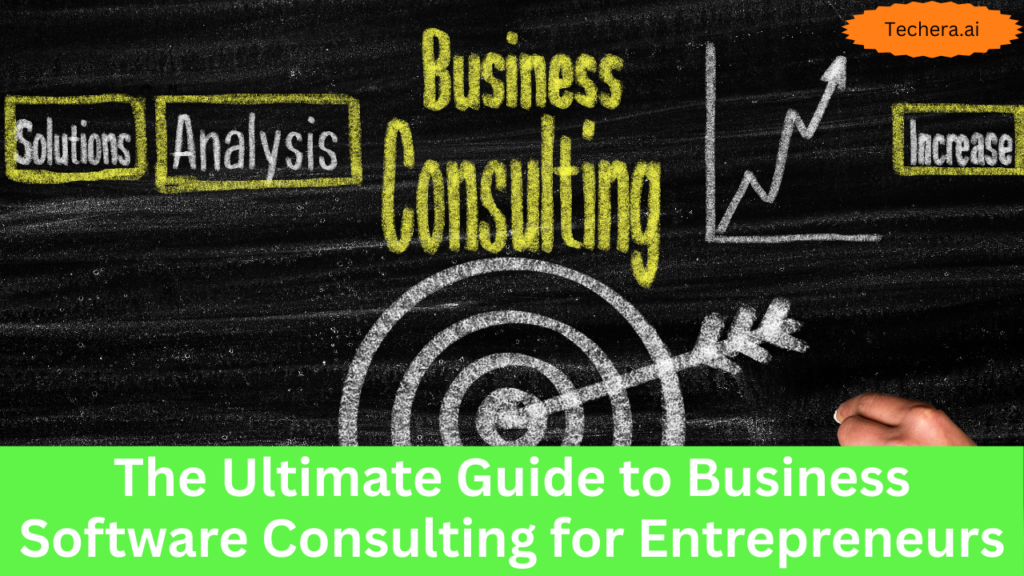
Introduction to Business Software Consulting
What Is Business Software Consulting?
Let’s face it, managing a business is a serious endeavor. You are juggling products, customers, finances, and your team. The right software can be your best friend — if you know what to use. That’s where business software consulting comes in. It’s all about helping you find, implement, and manage the perfect software stack for your unique business.
Why It’s Crucial for Entrepreneurs
Starting out or scaling up? Either way, having the right tools in place can mean the difference between chaos and clarity. Consultants bring experience and insight to help you avoid costly mistakes and tech headaches.
Benefits of Business Software Consulting
Save Time and Avoid Trial and Error
You could spend months testing different tools… or get expert advice and skip the frustration. A consultant can guide you straight to what works.
Increase Efficiency and Productivity
With streamlined systems in place, your team spends less time on repetitive tasks and more time on what matters — growth.
Improve Decision-Making with Expert Insight
business software consulting helps you choose solutions that align with your goals, budget, and team size. No more guessing games.
Future-Proofing Your Business
As you scale, your systems need to grow with you. Consultants help pick solutions that won’t become obsolete next year.
Types of Business Software Entrepreneurs Should Know

CRM (Customer Relationship Management) Tools
These help manage leads, contacts, and customer interactions. Think Salesforce, HubSpot, or Zoho CRM.
ERP (Enterprise Resource Planning) Systems
ERP tools like NetSuite or Odoo combine inventory, HR, finance, and more into one powerful system.
Accounting and Financial Software
Tools like QuickBooks, Xero, or FreshBooks help keep your finances clean, organized, and audit-ready.
Project and Task Management Tools
Stay on top of tasks with tools like Asana, Trello, or Monday.com.
Also Read : Exploring the Different Types of Business Software Consulting Solutions
E-Commerce and Point-of-Sale Software
Running an online store? You’ll need Shopify, WooCommerce, or Square to manage sales, inventory, and shipping.
HR and Payroll Systems
Software like Gusto or BambooHR simplifies hiring, time-tracking, and payroll.
Marketing Automation Tools
Save time and boost engagement with tools like Mailchimp, ActiveCampaign, or ConvertKit.
The Role of a Business Software Consultant
Assessing Business Needs
Every business is different. Consultants start by understanding your current systems, pain points, and goals.
Recommending Tailored Software Solutions
They suggest tools that fit your business — not just what’s trending.
Implementing and Integrating Systems
From installing software to integrating tools with each other — they handle the technical stuff.
Training and Ongoing Support
They train your team and offer support so everyone can hit the ground running.
How to Choose the Right Business Software Consultant

Evaluate Their Experience
Have they worked with businesses like yours before? Industry experience matters.
Check Testimonials and Case Studies
Look for proof. Real-world success stories speak volumes.
Ensure Industry and Technical Expertise
They should understand your field and the tools you’re considering.
Look for Clear Communication and Support
Tech talk is fine, but they should explain things in a way you actually understand.
Steps in a Typical Consulting Engagement
Discovery and Needs Analysis
A deep dive into your current setup, pain points, and future plans.
Strategy Development
They create a step-by-step roadmap tailored to your needs.
Software Selection and Procurement
Consultants shortlist the best options and help with vendor negotiations.
Setup, Testing, and Integration
Everything’s installed, tested, and synced with your existing systems.
Training and Rollout
Your team learns the ropes before going live.
Continuous Monitoring and Optimization
Even after launch, consultants keep an eye on performance and make tweaks as needed.
Typical Errors Made by Entrepreneurs (And How to Avoid Them)
Choosing Software Based on Price Alone
Cheaper doesn’t always mean better. Consider value, support, and scalability.
Skipping Training
Untrained users = underused software. Training is essential.
Ignoring Scalability
What works for 5 employees might not work for 50. Plan ahead.
Lack of Clear Implementation Plan
Don’t just “wing it.” A structured rollout saves time and avoids chaos.
Real-World Examples and Success Stories
- A boutique agency boosted revenue 30% after integrating CRM and invoicing tools with a consultant’s help.
- A Shopify store owner eliminated inventory headaches using ERP guidance.
- A startup automated 80% of their marketing after a consultant implemented ActiveCampaign and Zapier workflows.
Future Trends in Business Software Consulting
- AI-Powered Tools: Automation and predictive analytics are becoming the norm.
- Low-Code Platforms: Consultants will guide entrepreneurs through faster custom builds.
- Subscription Bundling: Expect tailored software “stacks” with one monthly fee.
- Cybersecurity Focus: More emphasis on secure integration and compliance.
Conclusion
Let’s face it — choosing and using business software can be overwhelming. But it doesn’t have to be. With the right business software consultant, you get expert advice, smooth implementation, and tools that actually help your business grow. Whether you’re just starting out or ready to scale, software consulting is an investment in clarity, efficiency, and success.
Frequently Asked Question
Q. What exactly does a business software consultant do?
A. They help you choose, implement, and optimize the right software tools for your business operations.
Q. Is hiring a consultant expensive?
A. It depends, but their expertise often saves you more in time, mistakes, and software costs in the long run.
Q. Can I just figure out the software myself?
A. Sure — but it’s time-consuming and risky. Consultants shortcut the process and help avoid pitfalls.
Q. How long does software implementation take?
A. Anywhere from a few days to several months, depending on your needs and the software complexity.
Q. What industries benefit most from business software consulting?
A. All industries — especially e-commerce, tech startups, agencies, and service-based businesses.

